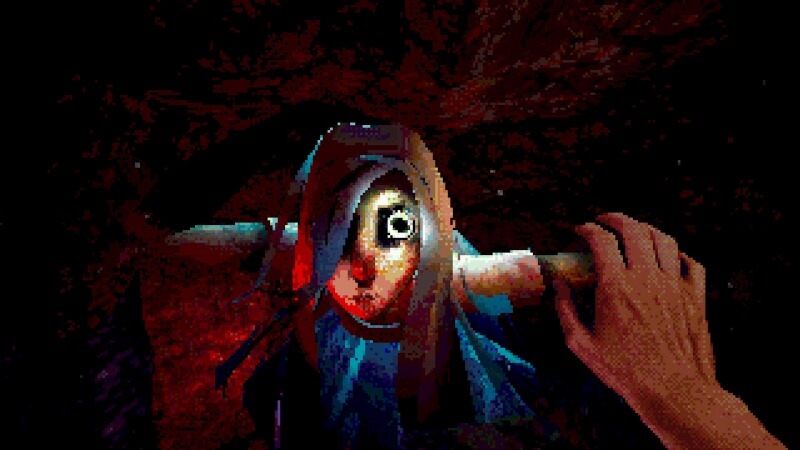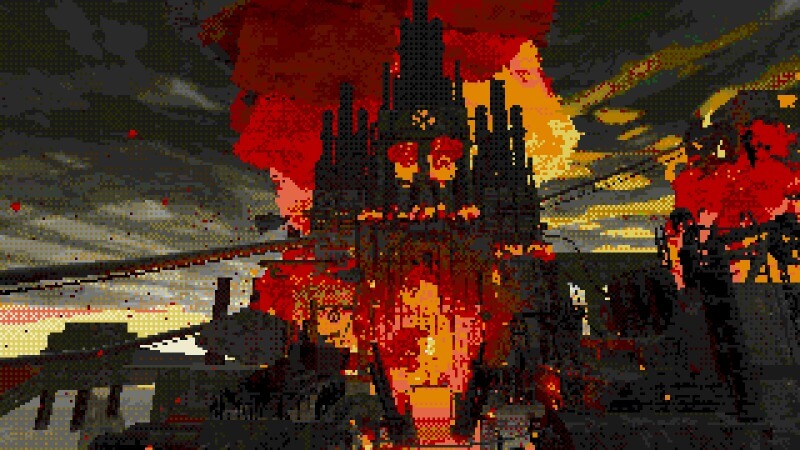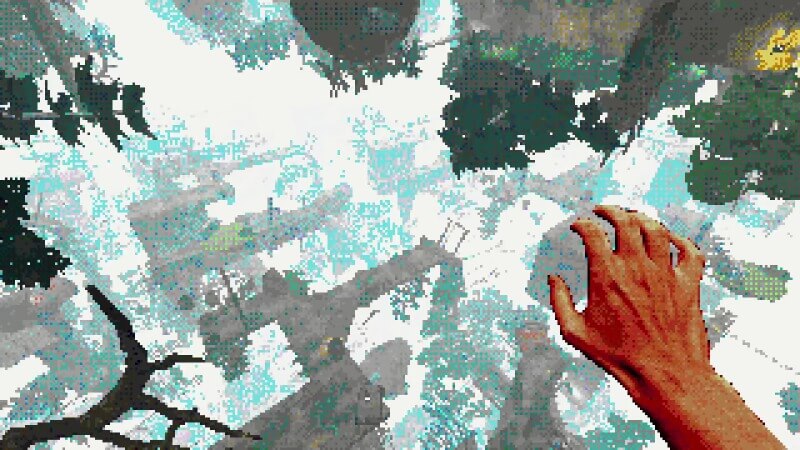Horror Game Eclipsium Can’t Quite Escape the Shadow of More Consistent Peers

An abandoned village beset by decay and raining fish. Elaborate caves full of writhing, worm-like monsters that fear the light. Industrial hellscapes of swaying poultry on meat hooks and raging furnaces. An eye, unwavering.
These are just a few of the surreal sights that await in Eclipsium, a first-person horror game from publisher Critical Reflex (Mouthwashing, Buckshot Roulette) and freshman studio Housefire, where you navigate an unknowable world in pursuit of Her. At its best, the game’s dreamlike sights and shifting cosmic horror strike a chord. At its worst, you’re inner meathead will desperately wish there was a sprint button so you could speed up some of its more tedious puzzles.
Events begin with little to no explanation, so I’ll keep it short: your unnamed character wakes up in a hospital. After a bit of preamble, they unhesitantly cut out their tongue with scissors—it’s gnarly!— as an offering to escape this place. Exiting through a magic door, they find themselves in a cruel, dying world where a giant tower crowned by a beating heart scrapes the sky. As you journey deeper, seemingly in pursuit of a mysterious woman, you give up more and more pieces of yourself while exploring a putrescent landscape.
As for what that entails from the player, the answer is mostly wandering around, at least at first. Similar to games like Dear Esther, the opening has you traversing in first person before you eventually come across a few sequences that require some brain power (and weirdly enough, a bit of platforming).
That said, this is definitely a vibe-oriented experience about walking around, one that channels surrealist art as you make your way through nightmarish sights. Overall, the main appeal here is how it encourages you to wonder, “What weird and/or upsetting thing am I going to see next?”

There are stretches that entirely deliver on this curiosity, and my personal favorite is an abandoned city full of smoke stacks and pigs transferred via meat hooks for some unknown purpose, a concentrated vision of post-industrial waste and suffering. Similarly effective are the handful of scenes where it fully leans into the horror billing, like one particularly ingenious sequence that makes great use of this world’s unsettling fixation on eyeballs. Sometimes you’ll approach a crack in a wall, only to be sucked in, the space around you shifting until you’re little more than a line being sucked through a concrete crevice. At one point, there’s what feels like a fairly blatant riff on 2001: A Space Odyssey and the ethereal chanting that surrounds its black monolith—it’s that kind of game.
-

-

-

-

-

-

-

-

-

-

-

-

-

-

-

-

-

-

-

-

-

-

-

-

-

-

-

-

-

-

-

-

-

-

-

-

-

-

-

-









































